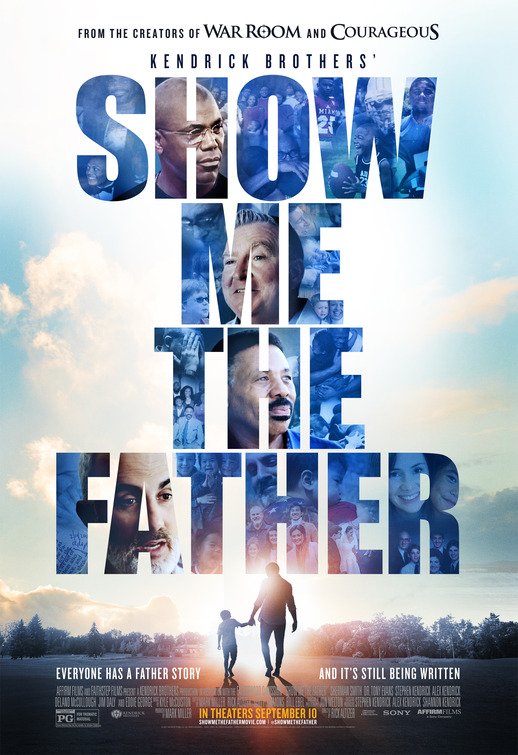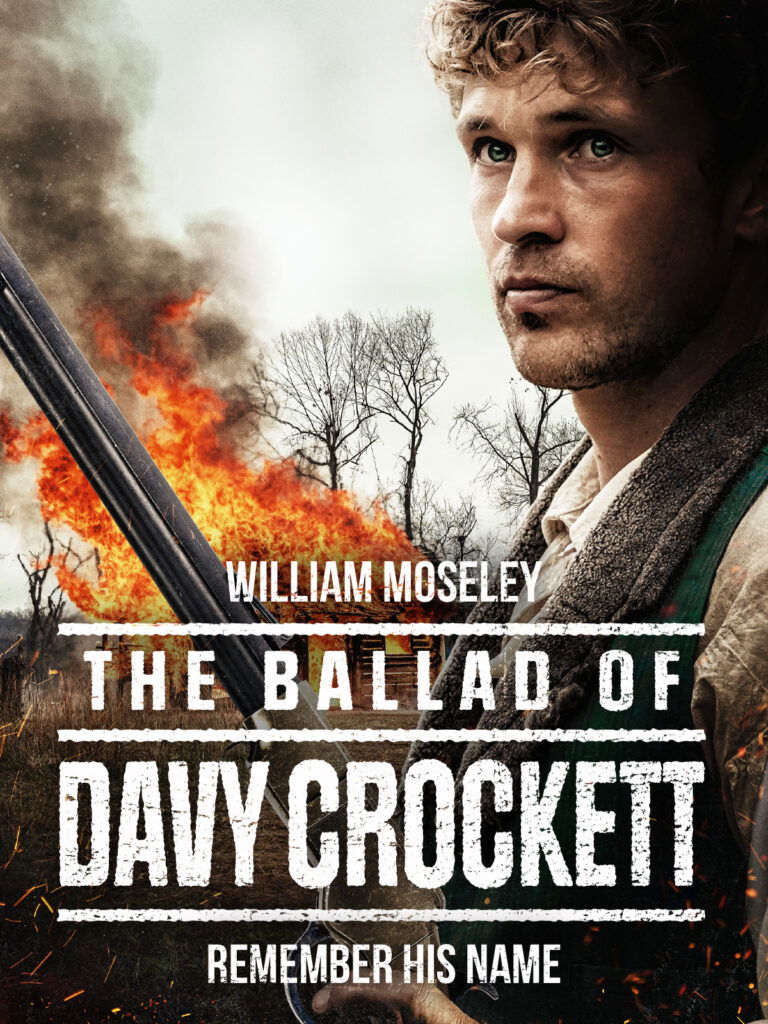“Savage Lands”

| None | Light | Moderate | Heavy | |
|---|---|---|---|---|
| Language | ||||
| Violence | ||||
| Sex | ||||
| Nudity |
What You Need To Know:
THE BALLAD OF DAVY CROCKETT has a strong Christian, moral, pro-family worldview that promotes family love and loyalty and even prayer. However, many scenes make no sense, seem rushed or end abruptly. THE BALLAD OF DAVY CROCKETT is also marred by some revisionist history. For example, Davy’s first wife, Polly, was already dead by the movie’s time period, and Davy had remarried. Also, the movie makes a false, politically correct moral equivalence between several people groups.
Content:
Strong Christian, moral, pro-family worldview promotes family, parental love and loyalty, a strong father and mother, boys begin to recite the Lord’s Prayer in one scene, and friendship between friendly American Indians and settlers, but there is some revisionist history such as title character’s first wife was actually dead at the time of the story, and he had already married a second time and had more than just two sons and movie says Davy Crockett at first supported President Andrew Jackson controversial Indian Removal Act, but he actually opposed it from the beginning and belonged to the opposing party to Jackson’s Democrat Party, plus the movie is marred by a politically correct attitude of moral equivalence;
One “d” word;
[SPOILERS FOLLOW] Strong and light violence such as villain has young boy whipped for walking too slowly, villain sets fire to family’s home, man falls off horse and is impaled by sharp stick, man shoots injured horse when they’re menaced by wolves, man shoots a racoon for a meal, Indian chases man, and then man fights three other Indians trying to kill the first Indian, man saves Indian from falling over a cliff, villains invade a family’s cabin and kidnaps the two boys, father fights villain and his men, villains beat up title character, man shot off horse, man stabbed in stomach, Indian who befriended father earlier and his tribal men attack villains too at an opportune moment;
No sex;
No nudity; Alcohol: No alcohol use;
No smoking or drugs; and,
Fur trader steals from his employees’ earnings and kidnaps Davy Crockett’s boys for the purpose of indentured servitude.
More Detail:
The movie begins with Davy Crockett as a Congressman in a meeting with President Andrew Jackson and his cabinet discussing the President’s plans to pass an Indian removal bill. Each member signs their petition to support the President. However, when it’s Davy’s turn to sign, he is reluctant but eventually caves due to pressure from the President. Before more discussion of the Jackson’s agenda can be planned, Davy receives a letter from his wife, Polly, that she has fallen ill. Davy immediately excuses himself much to the chagrin of the President who tries to manipulate Davy into staying. Unabated, he departs the meeting and begins his journey west to Tennessee.
Meanwhile, back at home, his two boys are having a difficult time taking care of the homestead. From cutting wood to shooting muskets, they are novices at almost every task, which begs the question why Davy would leave them in charge in the first place?
During these events, the movie follows the dealings of the Northern Fur Trading Company boss, Caleb. A greedy, conniving, arrogant person, Caleb discovers that this month’s beaver pelt quota is short by 25 pelts. Reactively, he takes out his outrage on one of the first men he sees, who is short this month, by firing him and leaving him with no belongings. Determined to find the pelt thief, Caleb searches the surrounding areas for all leads.
While galloping home, Davy Crockett falls from his horse and is impaled by a sharp branch. Disoriented and in pain, he observes that wolves are lurking nearby, ready to attack. Upon noticing the predators, Davy’s frightened horse sprints off to avoid being eaten. However, instead of trying to calm the horse down or scare the wolves away, Davy takes out his musket and mercy kills his own horse to avoid falling prey to the ravenous wolves. With leg bleeding out, Davy succumbs to bodily limitations and passes out.
Back home, the boys see that their mother is getting worse, so they begin to recite the Lord’s Prayer. The younger asks the older if he can pray to which the older allows. As they pray, “Our Father who art in Heaven, hallowed be your Name,” the scene shifts to an unconscious Davy under the dark rainy night of the Tennessee sky. As if the prayers echoed into his ear, Davy miraculously awakes and makes a fire in the cold wet night.
The next few scenes try to display Davy Crockett’s skills as a frontiersman and trapper. He is seen building a shelter, shooting a racoon for a meal, and even capturing a wild horse that happened to not run away, not even once. Once the horse is captured and broken (rather quickly), he continues his journey.
As if the journey home could not be more exciting, Davy encounters a lone native traveling on the same path as him. Abruptly, and without warning, a chase begins as the lone native rides after Davy along a narrow path through the woods. The pursuit seems to go on slowly until Davy ditches his horse and sprints up a hill to catch his pursuer off guard.
The lone native, seeing that the trail runs cold, jumps off his horse to look around. Immediately, he is cornered by three other natives from a different tribe, who appear out of nowhere, like ghosts. Seeing that his then single attacker is now fighting for his own life, this leads to another decision in Davy Crockett’s journey. Instead of turning his back on his outnumbered attacker, he helps by firing a musket round as a warning shot. This action immediately puts him on the hit list of this new war party. This leads to a fight and then chase scene between Davy and his lone ally and the three marauding tribesmen.
The hunt comes to a cliff hanging halt when Davy’s former attacker, now ally, falls over off a cliff but is barely saved by Davy’s outstretched arm. With a miraculous amount of time on their hands, Davy lifts his lone ally to safety and then sneaks away from their marauding pursuers. After this, the two of them depart from each other in peace.
While this is commencing, Caleb and one of his goons track down the missing beaver pelt to the Crockett family’s cabin and bangs on the door, demanding to be admitted. Davy’s oldest son readies his musket and fires a shot as the door is busted open. He misses and now the whole house is taken hostage by Caleb and his goon. After much arguing and fighting Caleb says they will wait for the boy’s father’s arrival to settle the debt. While all this is happening, Polly, apparently too ill, remains asleep in the small cabin despite the gunfire and loud commotion.
The next day, more of Caleb’s men arrive to provide backup to him and his right-hand man. As they are outside discussing things, Polly finally stirs awake and readies her musket that had been hiding under her blanket. She tells the boys to run and find Pa. Once one of Caleb’s men enters, she fires her shot, wounding him and yelling for the boys to run. They manage to escape through all Caleb’s men and make their way to Davy Crockett, who’s now nearby. However, they are all quickly taken as hostages, as Caleb’s men catch up to them. Back at the cabin, Polly bravely attempts to give her sons more time by fighting her captives but is beaten severely to the point of unconsciousness.
After Caleb’s men bring Davy and his boys back to the family’s cabin, Davy finally comes face to face with Caleb. A bunch of accusations ensue from the fur trading boss to which Davy exhaustedly defends. Caleb shrewdly manipulates the facts of the case and claims the boys are responsible for not just the one pelt but all twenty-five. Caleb tells Davy they must work four years to pay back the debt, but Davy desperately offers himself as a surrogate. Caleb refuses, however, a fight breaks out.
So, the question becomes, Can Davy Crockett save his family from this evil man and his gang?
THE BALLAD OF DAVY CROCKETT has a strong Christian, moral, pro-family biblical worldview, which promotes family love and loyalty, and prayer. For example, Davy decides to return home for his family despite getting pushback from President Andrew Jackson. He also offers himself to the villain to save his sons from a life of indentured servitude.
However, many scenes in the movie make no sense, seem rushed or end abruptly. They also could use better transitions. The movie also contains some violence, including a scene where the villain whips Davy’s oldest son.
THE BALLAD OF DAVY CROCKETT is also marred by some revisionist history. For example, although the movie’s notes say it’s set in 1815, the movie depicts Davy serving in Congress in 1830 helping Andrew Jackson while still being married to Polly. However, according to all historical texts, she passed away over 10 years before his Congressional run for the Tennessee ninth district in 1827. Also, by 1830, Davy had already remarried, his second wife had two other children of her own, and they had three children together. Finally, the beginning of THE BALLAD OF DAVY CROCKETT says Davy initially supported President Jackson’s Indian Removal Act of 1830. However, history shows that Davy fiercely opposed the Act from the beginning.
In addition, THE BALLAD OF DAVY CROCKETT makes a false, politically correct moral equivalence between people groups. At one point, when the malevolent fur trader Caleb captures Davy, he explains why he wants repayment in full from Davy’s sons. Caleb says, “Without the law, our whole society will be overrun by the savages” (meaning the Indians), to which Davy replies, “We are all savages.” From a biblical standpoint this may true, in the sense that we are all sinners in the eyes of God. However, it is factually inaccurate to say that all people groups behave and act the same. The brutality and savagery committed by people differs from group to group. An example of this are people groups living in Communist China or in Muslim countries living under Sharia Law versus nations operating under a general Christian, biblical worldview, such as the United States. So, although it’s true to say that, during the Indian Wars in the 19th Century, the United States was not a perfect nation and didn’t always deal honorably with the native American tribes, research shows that the some of the tribes of North America waged war against one another, enslaved one another and even engaged in cannibalism before the Europeans arrived in their various territories.
THE BALLAD OF DAVY CROCKETT warrants caution for older children because of violence and the movie’s revision history and politically correct content.


 - Content:
- Content: 

